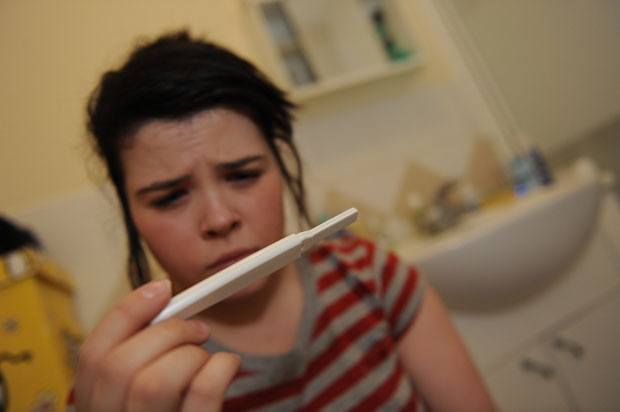How does adoption work? What to expect
Giving up a child for adoption is never easy. Both logistically and emotionally. Not to mention, people are constantly gonna be checking to make sure that you’re 100% certain about it. So before you start the process, you should get informed. The Mix outlines some things to consider and how adoption works in the UK.

How adoption works in the UK
How does adoption work in the UK? It’ll largely depend on how you want it to work.
Today, formal consent to adoption can’t take place until six weeks after the baby is born. If they want to, the biological mother and father can be really involved in decisions about where the child will be placed, and how much contact they’ll have with the adopted family and the child. If not, they can let the adoption agency assess all the prospective adopters (usually through an adoption panel) and take care of the paperwork it takes to adopt a child. It’s important to note that social services also provide the birth family with counselling and offer support, possibly including adoption support with a social worker, throughout the whole process.
Making the decision to give up a child for adoption
Of course, no one can predict how you’ll feel when the baby is actually given up for adoption. You may feel devastated, terrified, relieved, ashamed or guilty for ‘not feeling guilty enough’, angry, upset or all of the above. Maybe even an emotion we haven’t even thought of. Truth is, adoption is not always what the birth parents want – it might be what they need to do.
Reasons for choosing adoption are so varied and may relate to religion or the circumstances of the conception. Plus, the parent’s own personal or financial circumstances, mental and physical health and support network (or lack of one) will also be factors in the choice. If you do decide to go ahead with the adoption, for whatever reason, you have to know that you’re not abandoning your child; making the right decision for you and your baby is actually a responsible and caring action.
It’s really important that you don’t try to make this decision on your own. You need other opinions to help you see some different perspectives. Rose Dagoo, a counsellor with the Post Adoption Centre recommends that if you’re interested in adoption you: “take the time to think things through. You may wish to discuss the idea with close friends and family, and involve the father, if appropriate.”
Need support making your decision? The Mix is here to help, get in touch here.
The birth father
Just remember that the father will be going through his own emotional journey. Even if you didn’t end on the best of terms. While some fathers are automatically entitled to parental responsibility, for others it’ll be dependent on the birth mother. So, if at all possible, make sure you give them a chance to plead their case before you write them off completely. If you’re interested, you can find out more about birth father’s rights by clicking here.
Coping with the emotions and asking yourself the tough questions
“The mother needs to decide whether they can cope with carrying the baby for nine months and then not having them in their life. Impartial advice from a counsellor can help you make a decision that’s right for you and your child,” says Rose.
So if you’re wondering ‘how does adoption work in the UK?’ Well part of your process might be going to your GP, local Citizens Advice Bureau, or local branch of the British Association for Adoption and Fostering (BAAF), where they’ll get you to ask yourself questions such as:
- Does the baby’s father have a say in the adoption?
- Can I have contact with the child after they are adopted?
- Will I be able to help choose the adoptive parents?
- What happens if I want my baby back later?
- Can I have a say in my child’s upbringing?
- Will the baby be able to find me when they grow up? How will they feel about being adopted?
- What will I say to people who knew about the pregnancy like friends or family members?
During the adoption process
Deciding to give your baby up for adoption doesn’t make it final. You have up until six weeks after the birth before the process can even begin to be formalised. Adoption is a serious step for a mother to take; some mothers are surprised by how emotionally attached they become to their child during pregnancy, or after the birth. For others the opposite may be true. Regardless of your feelings before the baby arrived, if the adoption hasn’t been formalised yet, you can choose to keep your baby . The only catch is that you’ll need to be deemed fit to look after them. You can find out more about the laws surrounding the adoption process in this article.
After the adoption
It’s natural to feel upset, lost and confused after the adoption process finishes. Make sure you talk to someone and get all those emotions out in the open. In case you’re considering it, post-adoption counselling is available in most local authorities (Health and Social Care Trusts in Northern Ireland) and in voluntary organisations. Contact your GP or local BAAF branch for details.
“Today how adoption works in the UK can vary from situation to situation. It doesn’t have to be such a clean break. In fact, it’s actually often made easier – for both parents – if they involve themselves in the plans for their baby and are kept informed of their baby’s progress in the adopted family,” says Rose. “It can keep the child alive for them as they adjust to life after the pregnancy. Plus, it’ll also help later in life if the child chooses to look for them. If the parents continue to receive news and photos of their child it can bridge that emotional and visual gap between the baby they gave up, and the adult who finds them.”
Thanks to the BAAF and Post Adoption for their help in compiling this article.
Next Steps
- Chat about this subject on our Discussion Boards.
By Susie Wild
Updated on 17-Jun-2022
No featured article










